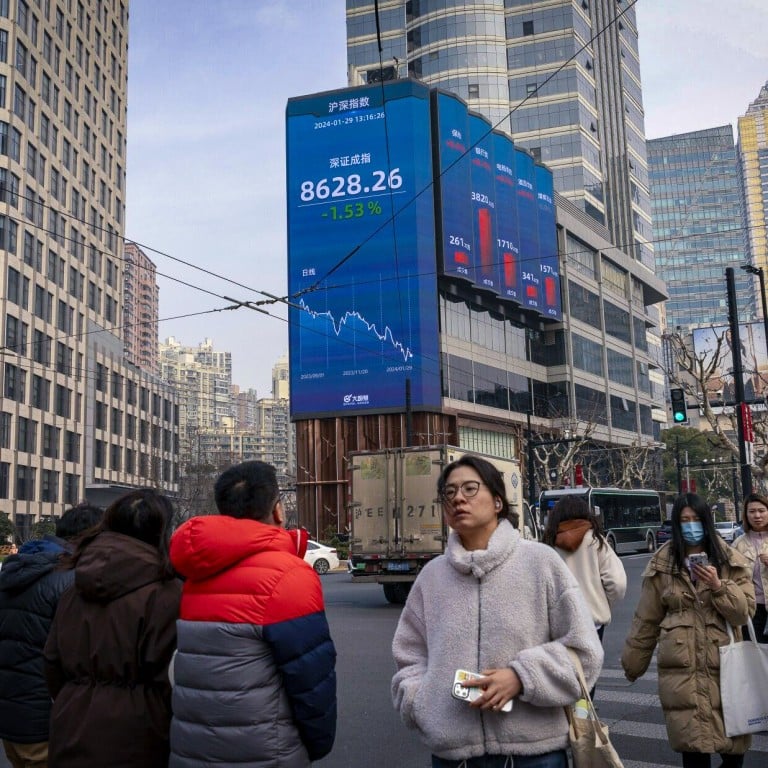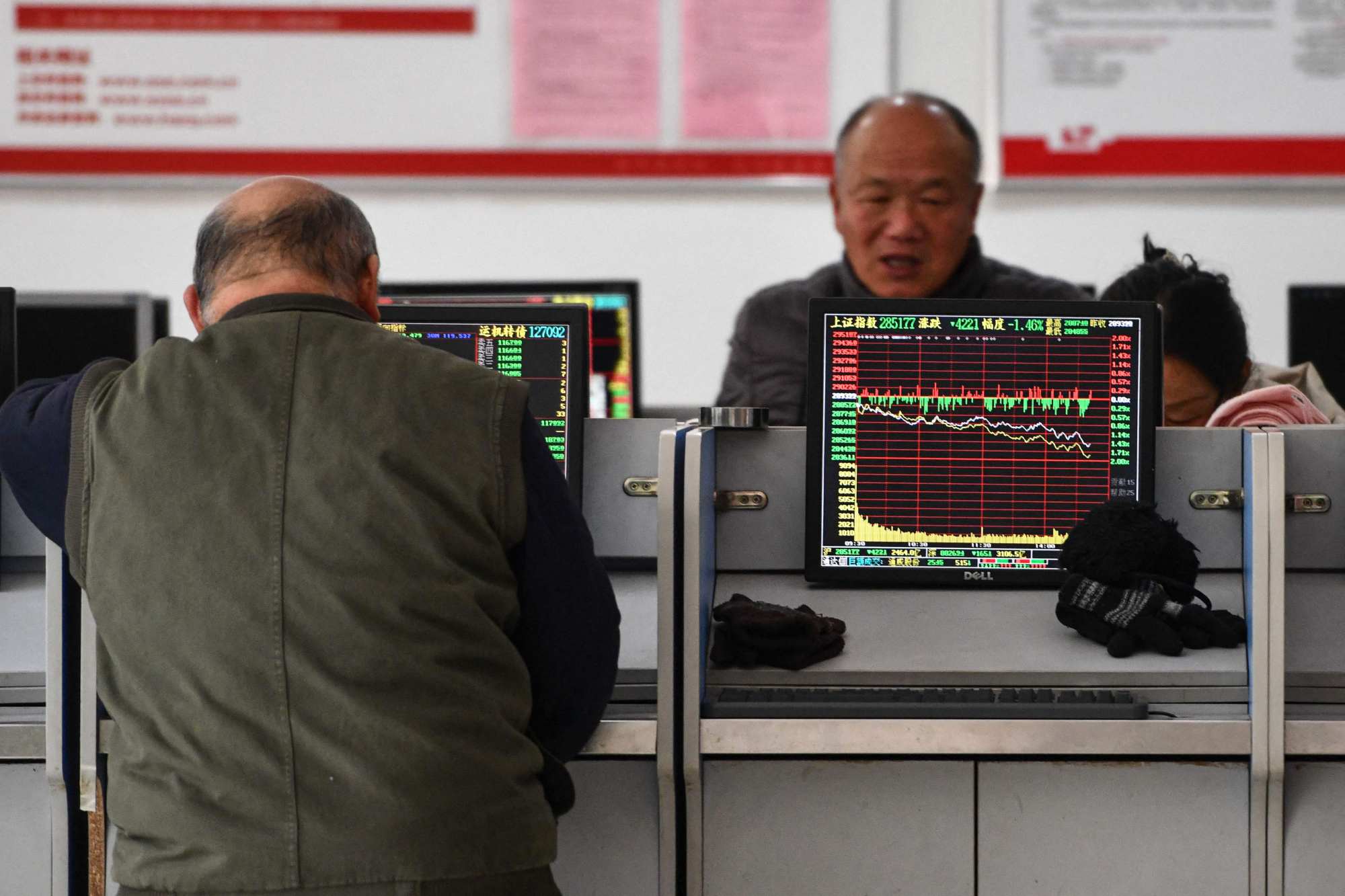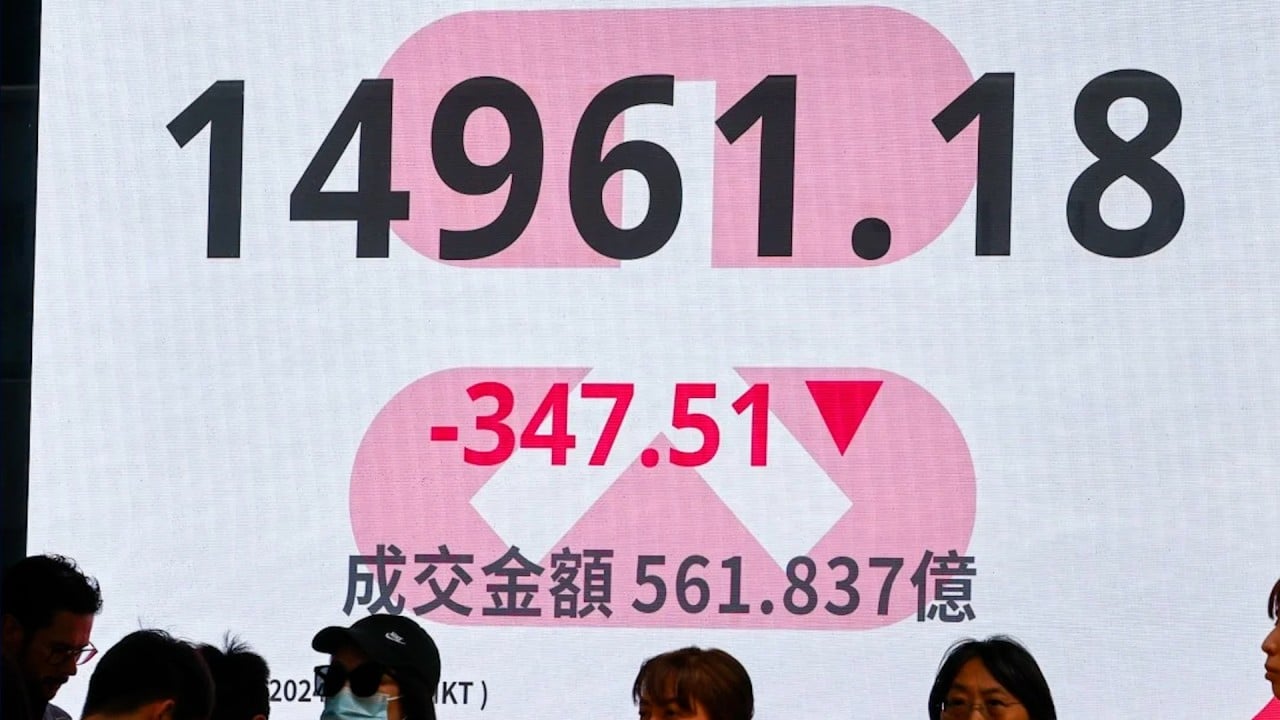
China’s battered stock market is down but not out
- Despite the gloom, there is a glaring lack of consensus about the outlook as Beijing signals more aggressive support. Critically, Wall Street banks are not ready to give up on China
The effect has been amplified by the growing appeal of other markets in Asia and Beijing’s woefully inadequate response to China’s grave economic problems. Morgan Stanley says policy easing measures have been “slow, reactive and insufficient”, leaving China with a tighter policy stance than 18 months ago.

Despite the gloom, there is a glaring lack of consensus about the outlook for Chinese shares. Many Wall Street banks are just as eager to present the bullish case as to lay out the bearish one.
Increasingly attractive prices are a key factor. Valuations have sunk to historical lows. According to Societe Generale, the forward price-to-earnings ratio of the CSI 300 stands at 8.3, compared with 11.9 for emerging markets, 20 for the S&P 500 and 22.5 for India’s BSE Sensex. For contrarian investors, Chinese stocks are a screaming buy.
It is conceivable that China’s stock market has bottomed out and catalysts for a meaningful recovery are starting to fall into place. While it would be an exaggeration to say the fear of missing out on an epic rally has taken hold, the stock market is not the economy and the odds of a sharp rebound are taken more seriously by fund managers than the grim headlines suggest.
Third, for all the pessimism about China, the country is at a different point in the cycle from Western economies. In China, all the bad news is priced in and policy is becoming more supportive. In the United States, all the good news is priced in and the risk of a sharper downturn and high interest rates for longer than expected is significant. The euro zone, meanwhile, is struggling to avert a recession.
Fourth, and perhaps most importantly, many investors have been waiting for a rally in Chinese stocks. Wall Street is not ready to give up on China even though a significant percentage of foreign investors have thrown in the towel.
Some investment banks are quite bullish. Goldman Sachs expects the CSI 300 to deliver a 19 per cent return this year, hingeing on an “effective policy put” or guarantee that Beijing will support the economy and markets.
In a January 23 report, Goldman Sachs presented a “wish list” of measures – which include demand-side stimulus, a government backstop for the housing and stock markets and support for the private sector – that could turn sentiment around. While there were plenty of risks, it said they were skewed to the upside.
Some might say most items on a wish list are unobtainable. Yet wishes are also a sign of hope. China’s battered stock market is down but not out.
Nicholas Spiro is a partner at Lauressa Advisory



